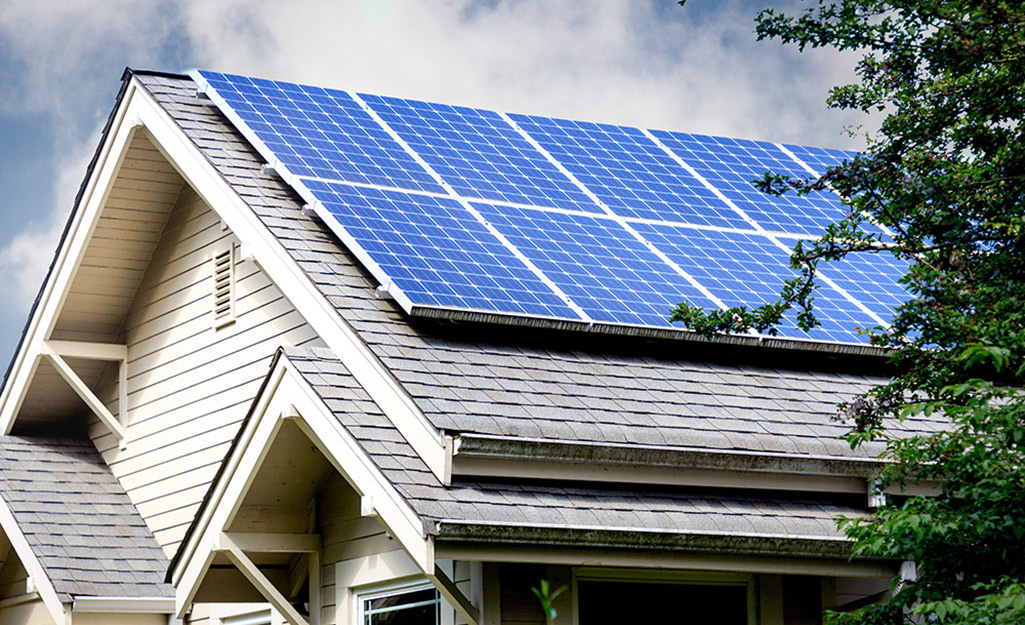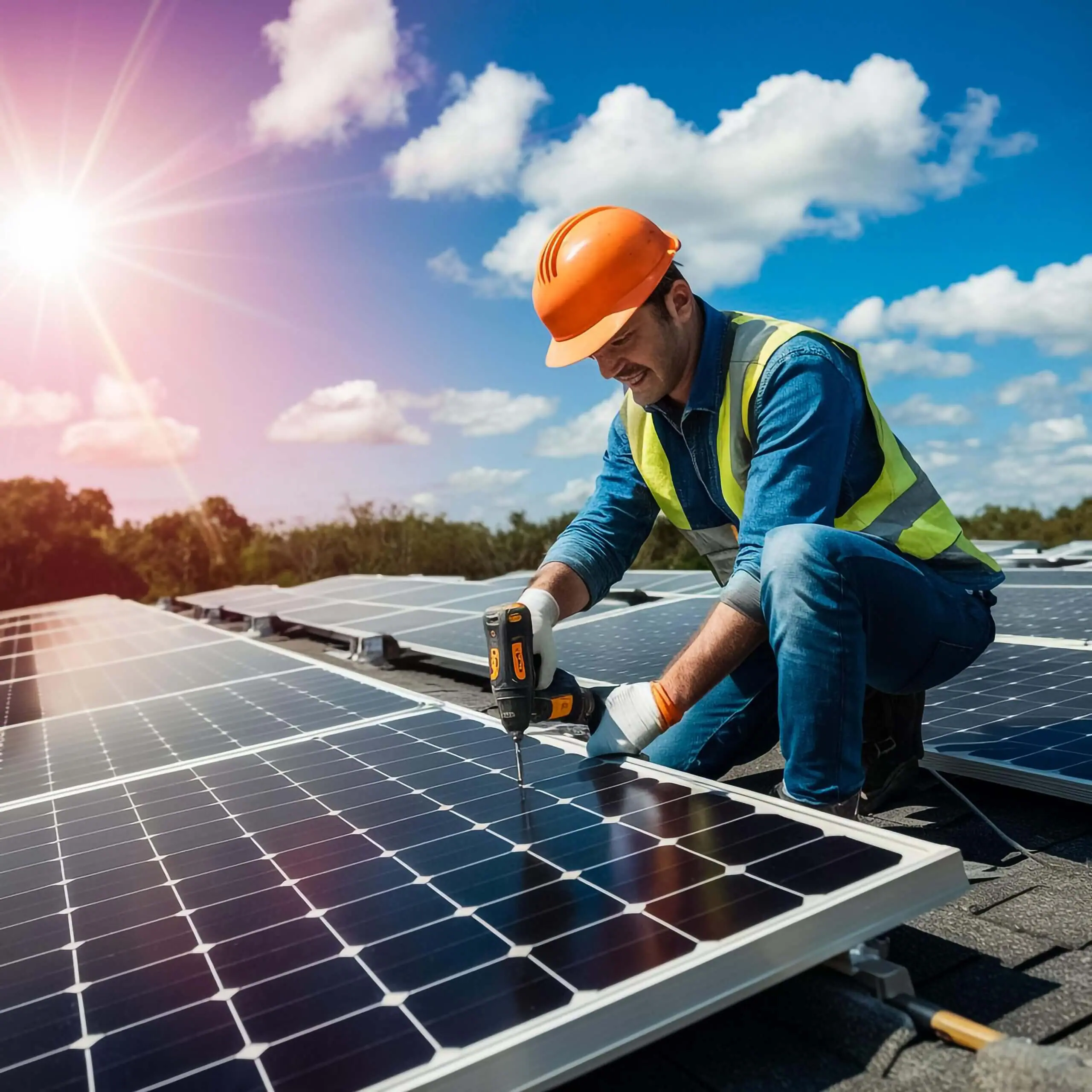As energy costs continue to rise and concerns about climate change intensify, more homeowners and businesses are turning to renewable energy solutions. One of the most popular options is solar power, and for good reason. Solar panels offer an eco-friendly, cost-effective way to power your home or business while significantly reducing your carbon footprint. In this guide, we’ll explore the benefits of solar panels, how they work, and why now is the perfect time to invest in solar energy.
At CheapQuotes.online, we aim to make the process of going solar as easy and affordable as possible. We connect you with top solar panel providers, offering a simple way to compare prices and find the best deals tailored to your energy needs.
What Are Solar Panels?
Solar panels, also known as photovoltaic (PV) panels, are devices that convert sunlight into electricity. They consist of many smaller units called solar cells, typically made from silicon, which capture sunlight and generate a direct current (DC) of electricity. This electricity is then converted into alternating current (AC) by an inverter, which is the form used to power your home or business.
There are two main types of solar panels:
- Monocrystalline Solar Panels: Known for their high efficiency and long lifespan, these panels are made from a single, pure silicon crystal.
- Polycrystalline Solar Panels: These are made from silicon crystals that are melted together, offering a slightly lower efficiency but at a more affordable price.
How Solar Panels Save You Money
While the initial cost of installing solar panels can seem high, the long-term savings are significant. Here’s how investing in solar energy can help lower your electricity bills:
-
Lower Energy Bills: Solar panels can reduce or even eliminate your electricity bill by allowing you to generate your own energy. The more electricity your solar panels produce, the less you need to purchase from your utility provider.
-
Net Metering: Many areas offer net metering programs that allow you to sell any excess energy your solar panels produce back to the grid. This can earn you credits on your electricity bill, effectively reducing your overall energy costs.
-
Tax Incentives and Rebates: In many countries, including the U.S., the government offers incentives to encourage the adoption of solar energy. This can include tax credits (such as the Federal Investment Tax Credit), rebates, and grants, which can significantly reduce the upfront cost of installation.
-
Increase in Property Value: Homes with solar panels tend to have higher property values. According to studies, homes with solar installations sell for a premium compared to those without. This makes solar panels not just a money-saving investment but also one that can provide a good return if you decide to sell your property.
-
Reduced Maintenance Costs: Solar panels require minimal maintenance once installed. With no moving parts, they are durable and typically last 25 years or more. After the initial installation, maintenance costs are low, with occasional cleaning and inspections.
Environmental Benefits of Solar Panels
In addition to saving money, solar panels offer significant environmental benefits. Here’s how they help reduce your carbon footprint and contribute to a healthier planet:
-
Reduction in Greenhouse Gas Emissions: Solar power is a clean energy source. Unlike fossil fuels, solar energy doesn’t emit carbon dioxide (CO2) or other harmful pollutants that contribute to climate change and poor air quality. By switching to solar, you can significantly reduce your contribution to global warming.
-
Sustainable Energy Source: Solar energy is renewable, meaning it is naturally replenished and will never run out. Unlike coal or natural gas, the sun is an abundant resource, making solar panels a sustainable solution to meet our growing energy needs.
-
Less Strain on the Grid: By generating your own energy, you reduce your dependence on the grid. This helps lessen the strain on local power plants and decreases the need for additional fossil-fuel power plants, leading to a decrease in overall emissions.
-
Conservation of Resources: Solar energy doesn’t require extracting or depleting natural resources like oil or coal, which are limited and harmful to the environment. Solar panels provide a cleaner, more sustainable alternative.
The Process of Installing Solar Panels
The process of installing solar panels can seem complicated, but it’s fairly straightforward when working with the right professionals. Here’s what to expect:
-
Assessment and Consultation: A solar provider will assess your property to determine the best location and type of solar system for your needs. They will evaluate factors such as your roof’s condition, the amount of sunlight your location receives, and your energy usage.
-
System Design: Based on the assessment, the solar company will design a customized solar system that meets your energy requirements. This may include choosing the right number of panels, selecting an inverter, and deciding on the system layout.
-
Installation: Once the design is approved, the installation team will install the solar panels on your roof or another location with adequate sunlight. Installation typically takes one to three days, depending on the size of the system.
-
Inspection and Activation: After installation, the system will undergo an inspection to ensure it meets local codes and regulations. Once approved, the system will be activated, and you can begin generating solar power.
-
Ongoing Monitoring: Many solar companies offer monitoring systems that allow you to track the performance of your solar panels in real-time. This helps you ensure your system is functioning efficiently and provides you with a report on how much energy you’ve generated.

Factors to Consider Before Installing Solar Panels
Before committing to solar energy, consider these factors to ensure it’s the right investment for you:
-
Location: The amount of sunlight your home or business receives plays a significant role in how effective your solar panels will be. Areas with more sunlight, such as the southern U.S., are ideal for solar energy generation.
-
Roof Condition: If your roof is old or in need of repair, it may need to be replaced before installing solar panels. Ensure your roof is structurally sound to avoid any future issues.
-
Energy Usage: Understand your energy consumption habits. If your energy usage is high, you’ll need a larger solar system to meet your needs. Conversely, if your energy consumption is low, a smaller system may suffice.
-
Upfront Cost: While solar panels can save you money in the long run, the initial installation cost can be significant. Be sure to factor in available incentives, financing options, and long-term savings when determining if solar energy is a viable investment.
-
Maintenance: Solar panels are low-maintenance, but they still require occasional cleaning and inspection. Make sure you’re comfortable with the level of upkeep required.
Conclusion
Solar panels are an investment in both your future and the planet’s future. By providing significant cost savings, reducing your carbon footprint, and contributing to a more sustainable world, they are an excellent choice for homeowners and businesses alike. With the right information and resources, the process of going solar can be simple and rewarding.
If you’re considering making the switch to solar energy, CheapQuotes.online can help you compare solar panel installation providers and find the best deals in your area. Start your journey toward energy independence and environmental responsibility today!
Thank you for reading this guide. We hope it helps you make an informed decision about solar energy. Visit CheapQuotes.online for more information and to explore your options for going solar!

